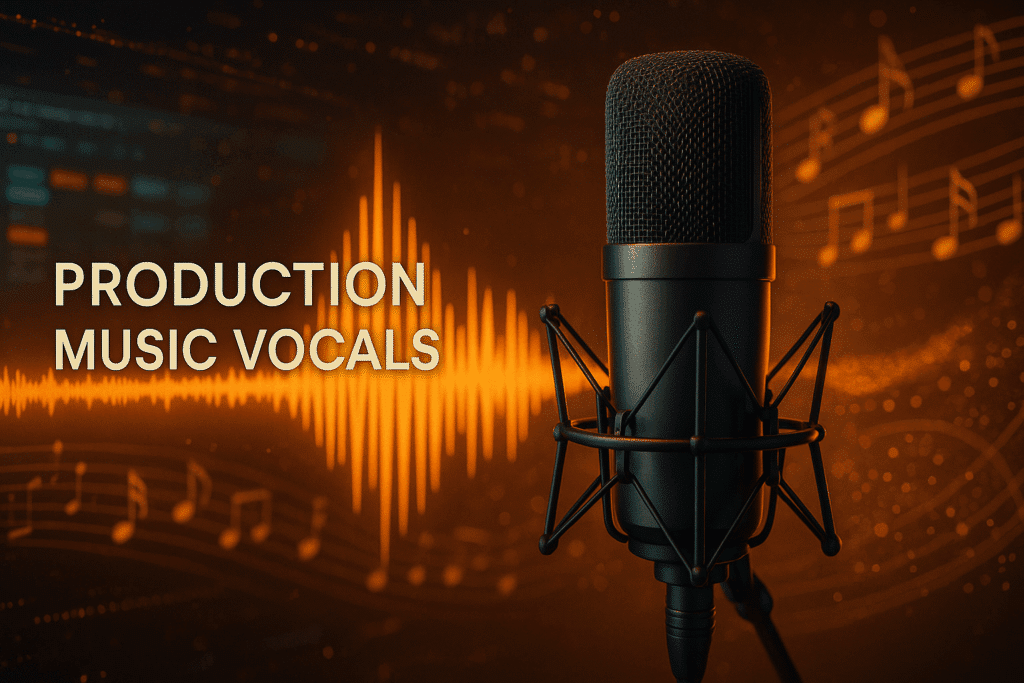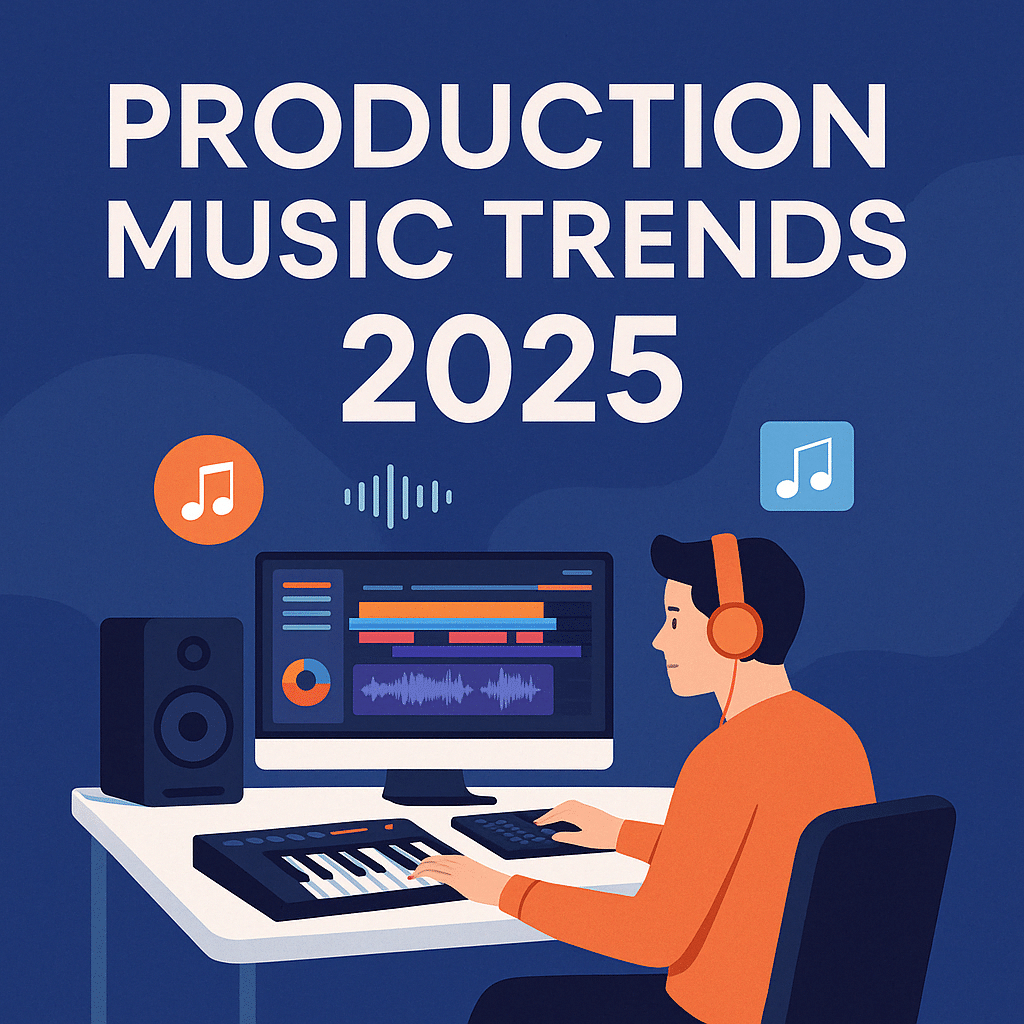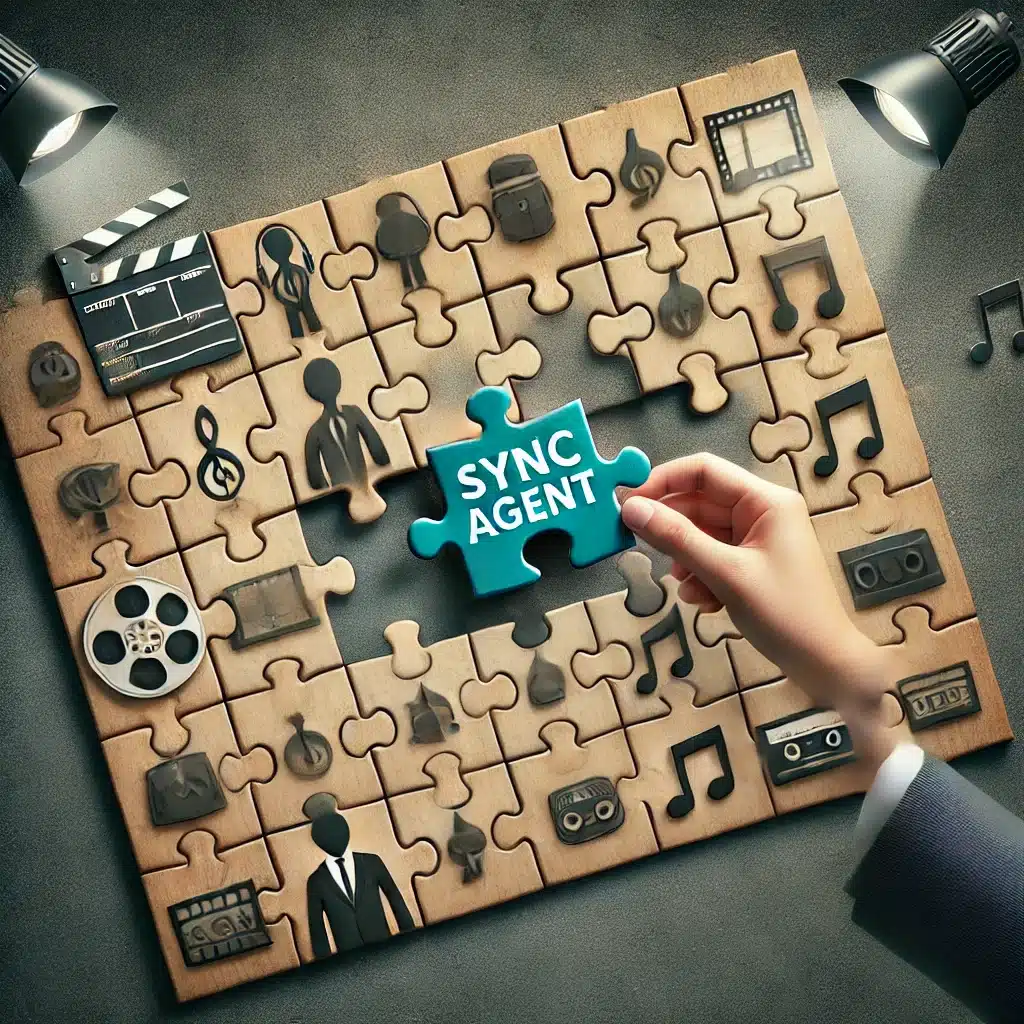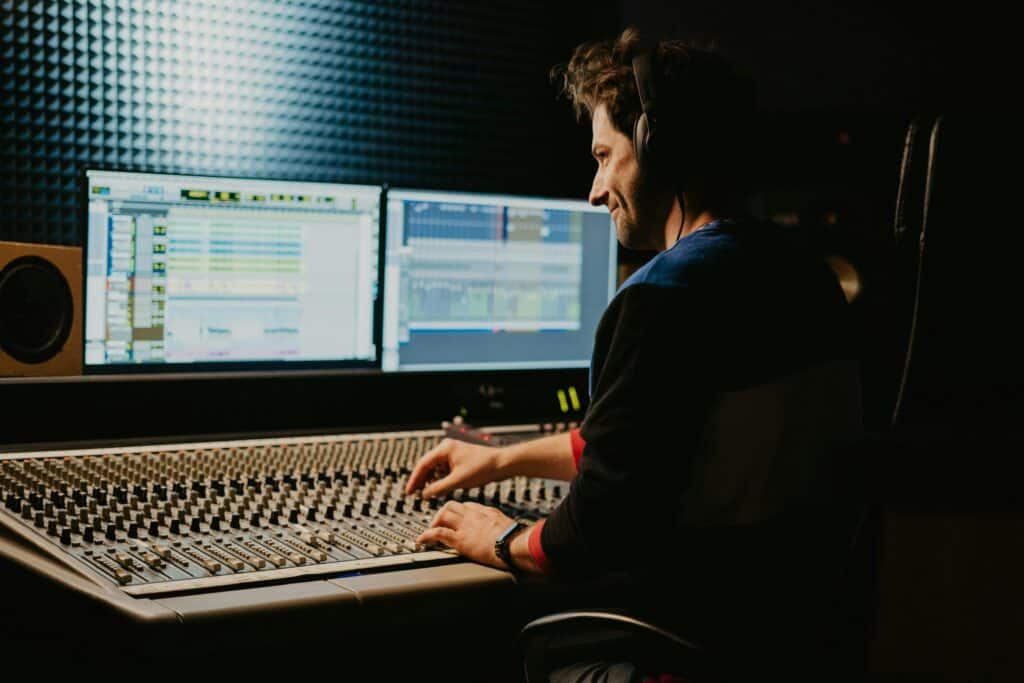For years, the backbone of production music libraries has been a rich tapestry of instrumental cues. From sweeping orchestral pieces to driving electronic beds, instrumentals have reliably set the mood and driven narratives across countless media productions. However, the sonic landscape is evolving. A new gold rush is underway, and savvy production music composers are striking it rich with a powerful, often underutilized asset: the human voice. Vocal tracks in production music, encompassing everything from catchy lyrical songs to evocative non-lyrical vocalise, are experiencing a surge in demand, particularly in high-impact placements like reality TV, compelling advertisements, and attention-grabbing trailers. 
This isn’t just a fleeting trend; it’s a fundamental shift in how music is being used to connect with audiences on a deeper emotional level. If you’re a production music composer looking to expand your creative palette and increase your sync opportunities, understanding and harnessing the power of vocals is no longer optional—it’s essential. This article will explore why vocal tracks are gaining such momentum. It will offer practical tips on writing effective vocal melodies and lyrics tailored for sync. And, it will guide you through finding and collaborating with talented vocalists (both human and AI-assisted). It will also demystify the crucial licensing nuances that come with adding voice to your productions.
Why Production Music Vocal Tracks Are Gaining Momentum
The ascent of vocal tracks in the production music sphere isn’t accidental. Several factors contribute to their growing appeal among music supervisors, editors, and content creators:
- Unparalleled Emotional Connection: The human voice is arguably the most expressive instrument. A well-crafted vocal line, whether sung with poignant lyrics or as an ethereal vocalise, can instantly evoke specific emotions and forge a direct connection with the listener. This emotional resonance is invaluable in media, where the goal is often to make the audience feel something in a short amount of time.
- Enhanced Storytelling Power: Lyrics, when used effectively, can directly support and amplify the narrative on screen. They can provide context, underscore a character’s internal state, or drive home a key message. Even non-lyrical vocals can tell a story, adding layers of suspense, joy, or longing.
- Increased Memorability and Brand Recognition: Think about your favorite advertisements or TV show themes. Chances are, many of them feature a catchy vocal hook. Vocal melodies tend to stick in our heads, making the associated content or brand more memorable. This is gold for advertisers aiming for recall and for shows wanting to create a strong sonic identity. Research, including studies by Nielsen on the emotive power of music in advertising, suggests that ads with music, particularly those featuring engaging vocal elements, often see enhanced viewer connection and recall.
- Versatility Across Genres and Uses: From indie-pop anthems in coming-of-age films to soulful vocal chops in reality TV transitions, and epic choral arrangements in blockbuster trailers, vocals are incredibly versatile. The rise of diverse content on streaming platforms and social media has opened the door for a wider array of vocal styles to find placement.
- The “Authenticity” Factor: In an era where audiences crave genuine connection, vocals can lend an air of authenticity and human touch that can sometimes be harder to achieve with purely instrumental tracks. A unique vocal timbre or a heartfelt lyrical delivery can make a track stand out.
Content creators are actively seeking these qualities, moving beyond merely functional background music to find tracks that become an integral part of the viewer’s experience.
Crafting Sync-Worthy Vocal Melodies and Harmonies
Creating vocal lines that not only sound good but also work effectively in a sync context requires a specific approach. It’s about balancing artistic expression with the functional needs of media.
The Art of the “Earworm”: Writing Memorable Melodies
The melodies destined for sync success often share a few key characteristics:
- Simplicity and Catchiness: Complex, meandering melodies can get lost or distract from the visuals. Aim for clear, concise melodic phrases that are easy to follow and hum. Think about what makes a pop song hook so effective – it’s often its singability.
- Repetition with Variation: Repetition helps a melody stick, but too much can become monotonous. Introduce subtle variations in rhythm, pitch, or phrasing to keep the listener engaged.
- Appropriate Range: Consider the vocalist you have in mind, but also aim for a range that is generally accessible and pleasing. Extreme highs or lows might limit the track’s usability.
- Sync-Savvy Phrasing – Leaving Space: This is crucial. Unlike commercial song releases, production music vocals often need to coexist with dialogue, voice-overs, or significant sound effects. Craft melodies that have natural pauses or sections with sparser vocal activity. This allows editors to easily weave the music around other audio elements without clashes. Think about creating “donut” sections where the vocal drops out, perfect for a voice-over.
- Focus on the Hook: Often, a short, incredibly catchy vocal hook is what sells the track for a 15 or 30-second spot. Make sure this part is undeniable.
Harmony That Elevates, Not Overpowers
Backing vocals and harmonies can add incredible depth and emotion, but they must serve the lead vocal and the overall track, especially for sync.
- Supporting Role: Harmonies should primarily support and enhance the lead melody, not compete with it. They can add richness and emotional color.
- Texture and Emotion: Simple “oohs,” “aahs,” or other non-lyrical vocalise can create beautiful textures that work wonderfully as underscore. These can be particularly useful as they provide human warmth without specific lyrical meaning, making them highly versatile. Explore how different vowel sounds can evoke different moods.
- Arrangement is Key: Consider where harmonies enter and exit. Perhaps they build into a chorus or provide a gentle pad in a verse. Dynamic arrangement keeps the vocal interesting and adaptable. Avoid overly dense harmonic stacks throughout the entire track unless the specific brief calls for a massive choral sound.
Lyrical Alchemy: Writing Words That Work for the Screen
Lyrics in vocal production music have a different job than lyrics in a standalone commercial song. They need to support the visuals, not dictate them.
Universal Themes vs. Hyper-Specificity
While there’s a place for every kind of song, for general production music library use, lyrics with universal themes tend to have broader appeal.
- Relatable Emotions: Focus on common human experiences and emotions: hope, love, joy, overcoming adversity, reflection, celebration, aspiration. These themes can fit a wide range of visual contexts.
- Avoid Niche Topics (Usually): Lyrics about very specific personal situations, names, places, or events can limit a track’s usability. The more universal the message, the more potential placements it has.
- Mood is King: Often, the mood conveyed by the lyrics is more important than a detailed story. Does it feel uplifting, determined, melancholic, playful? If your library allows for it, creating different lyrical versions around a central theme (e.g., one optimistic, one more questioning) can increase a track’s versatility. For more on moods check this link.
The “Less is More” Approach for Sync
Clarity and conciseness are your friends when writing lyrics for picture.
- Economical Language: Choose your words carefully. Avoid overly poetic or abstract language that might be hard to grasp quickly or could clash with the on-screen narrative.
- Space for Visuals: Don’t cram too many words into each phrase. Allow the visuals and the music to breathe. Instrumental breaks or sections with minimal vocals are highly valued by editors.
- Evocative Imagery: Instead of telling a complex story, focus on words and short phrases that evoke strong images or feelings. This gives editors more flexibility.
Keywords and Vibe: Understanding the Brief (Even When There Isn’t One)
When you’re writing for libraries without a specific brief, you’re essentially anticipating future needs.
- Think in Keywords: Consider the types of keywords music supervisors search for: “empowering,” “dreamy,” “road trip,” “confident,” “building.” Try to embody these vibes in your lyrics and overall song.
- Positive and Neutral Angles: Generally, positive or emotionally neutral lyrics tend to be more versatile. However, there’s also demand for tracks with a touch of melancholy or tension, so don’t be afraid to explore a range, ensuring the production matches the lyrical intent.
Finding Your Voice: Collaborating with Vocalists and Exploring AI Options
Securing the right vocal performance is paramount. This traditionally means collaborating with human singers, but emerging AI technologies offer new avenues.
Working with Human Vocal Talent
Unless you’re a skilled vocalist yourself, you’ll likely need to collaborate. Finding the right voice and fostering a good working relationship is key.
- Where to Find Vocal Talent:
- Online Platforms: Websites like SoundBetter, Vocalizr, and even Fiverr host profiles of session vocalists across various genres and price points. You can listen to demos and read reviews.
- Social Media & Local Groups: Facebook groups for musicians in your area, or genre-specific online communities, can be great for finding local talent or remote collaborators.
- Music Schools and Universities: Local colleges often have talented vocal performance students who may be looking for experience and portfolio pieces.
- Networking: Attend local music events, open mics, or industry meetups. Word-of-mouth referrals can lead to great collaborators.
- Building a Successful Collaboration:
- Clear Vision & Communication: Provide a well-produced guide track with a clear melody (even if it’s you humming or a synth line). Clearly communicate the style, mood, and any specific delivery notes. Reference tracks can be very helpful.
- Agreements are Essential: BEFORE any recording begins, agree on payment terms (e.g., flat fee for work-for-hire, or a percentage of writer’s share/master ownership if it’s a true collaboration). Get it in writing! This is crucial for licensing later. For more on this, see this article.
- Respect Their Craft: Be open to their creative input (if you’re open to it), provide constructive feedback, and ensure they have what they need to deliver a great performance.
- Technical Considerations: Discuss their recording setup if working remotely to ensure quality. Provide clear instructions on file delivery formats.
The AI Vocalist: A New Frontier for Production Music
Alongside human collaboration, AI-powered vocal generation tools are rapidly emerging, offering composers new creative possibilities. Platforms like SoundID Voice AI and Kits.AI provide access to AI voice models that can perform your melodies and lyrics, create vocal textures, or even offer voice cloning capabilities (with appropriate permissions).
- Potential Use Cases for AI Vocals:
- Rapid Prototyping: Quickly generate demo vocals for your tracks to pitch ideas or test arrangements without the immediate need or expense of a session singer.
- Backing Vocals & Textures: Create lush backing harmonies, ad-libs, or non-lyrical vocalise (“oohs” and “aahs”) to add depth and character to your productions.
- Creative Exploration: Experiment with diverse vocal styles, timbres, and effects that might be outside your own vocal range or the immediate availability of a specific type of singer.
- Budget-Friendly Solutions: For projects with tight budgets or quick turnaround times, AI vocals can offer a cost-effective alternative for certain applications.
The quality of AI vocals is continuously improving, making them an increasingly viable tool in a composer’s toolkit. However, their use also brings unique licensing and ethical considerations.
Navigating the Nuances: Licensing Vocal Tracks (Human and AI)
Production music vocal tracks, whether human-performed or AI-generated, introduce additional layers to music licensing that composers must understand to avoid future headaches.
- Copyright Essentials (Human Vocals): Remember, a song with human vocals has multiple copyrightable elements:
- Musical Composition: The melody and harmony (owned by the songwriter/composer).
- Lyrics: The words (owned by the lyricist).
- Sound Recording (Master): The actual recorded version of the song with vocals (owned by the artist/label, or in production music, often the library or composer who commissioned it).
- Writer’s Share and Publisher’s Share: Both the composer of the music and the writer of the lyrics are typically entitled to a writer’s share and a publisher’s share of performance royalties. Ensure your agreements clearly state these splits.
- Master Rights for Vocals: If you hire a human vocalist on a work-for-hire basis, your agreement should clearly state that you (or your company) own the master recording of their vocal performance. If it’s a collaboration where the vocalist retains a share of the master, this needs to be documented.
- Clearances are Non-Negotiable (Human Vocals): EVERYONE who contributed to the song (composer, lyricist, featured vocalist if not work-for-hire) must be identified, and their agreement to the licensing terms must be secured. Music libraries will require this.
- Split Sheets: Use split sheets religiously for every track with human collaborators. This document outlines who wrote what percentage of the song (music and lyrics) and who owns what percentage of the publishing. It’s vital for PRO registration and royalty distribution.
Licensing and Ethical Considerations for AI-Generated Vocals
The use of AI-generated vocals is a rapidly evolving area with important distinctions:
- Copyright & Ownership: As of May 2025, the copyright status of purely AI-generated content can be complex and varies by jurisdiction. Works lacking significant human authorship may not be eligible for copyright in some regions. However, if a composer uses AI as a tool and significantly modifies, arranges, or curates the output, there’s a stronger argument for human authorship of the final track.
- Platform Terms of Service: Crucially, you must thoroughly understand the terms of service for any AI vocal platform like
kits.aior others. These terms will dictate:- Who owns the generated vocal recordings.
- Whether the vocals can be used for commercial purposes.
- Any restrictions on distribution or sub-licensing.
- Whether royalties are due to the platform or original voice model creators.
- Voice Cloning Ethics and Legality: If using AI voice cloning features, explicit consent from the original voice owner is paramount. Unauthorized cloning can lead to serious legal and ethical issues, including infringement of personality rights or right of publicity. Most reputable AI platforms offering cloning will have strict consent verification processes.
- Transparency with Libraries: Be transparent with music libraries about your use of AI-generated vocals. Libraries are currently developing their own policies regarding AI content. Some may fully embrace it with disclosure, others may have specific restrictions, and some might not accept it at all, especially if the provenance and licensing are unclear. Always check their submission guidelines.
- Due Diligence: The field of AI music is new and exciting, but it requires careful navigation. Prioritize using reputable platforms with clear licensing terms and always ensure ethical practices, particularly concerning voice cloning.
The Future is Vocal: Positioning Yourself for Success
The demand for high-quality vocal production music is not just a passing phase; it reflects a deeper need for music that connects, tells stories, and makes media more memorable. By embracing vocal production – whether through traditional collaboration or the innovative use of AI tools – you’re not just adding a new skill to your arsenal; you’re significantly broadening your marketability and potential for sync placements.
Start experimenting. Write a few tracks with simple vocal hooks or atmospheric vocalise. Reach out to a vocalist or explore an AI vocal platform to try a collaboration or generate ideas. The more you practice and build your portfolio of vocal-driven tracks, the better positioned you’ll be to capitalize on this “vocal gold.” Remember, quality in both composition and recording, alongside clear licensing, is paramount.
Conclusion
The industry is clearly signaling a growing appetite for vocal tracks in production music. By understanding the reasons behind this trend, honing your skills in writing effective vocal melodies and lyrics for sync, fostering strong collaborations with human artists, ethically exploring the potential of AI vocal tools, and navigating the licensing landscape with care, you can unlock a wealth of new opportunities. It’s time to let the power of the human (and AI-assisted) voice elevate your productions and help you claim your share of the vocal gold.
 demand for fresh, sync-ready music is stronger than ever. For composers, it’s no longer enough to just write good music. Success requires genre versatility, production efficiency, and an understanding of how AI and metadata are reshaping the creative process.
demand for fresh, sync-ready music is stronger than ever. For composers, it’s no longer enough to just write good music. Success requires genre versatility, production efficiency, and an understanding of how AI and metadata are reshaping the creative process.

